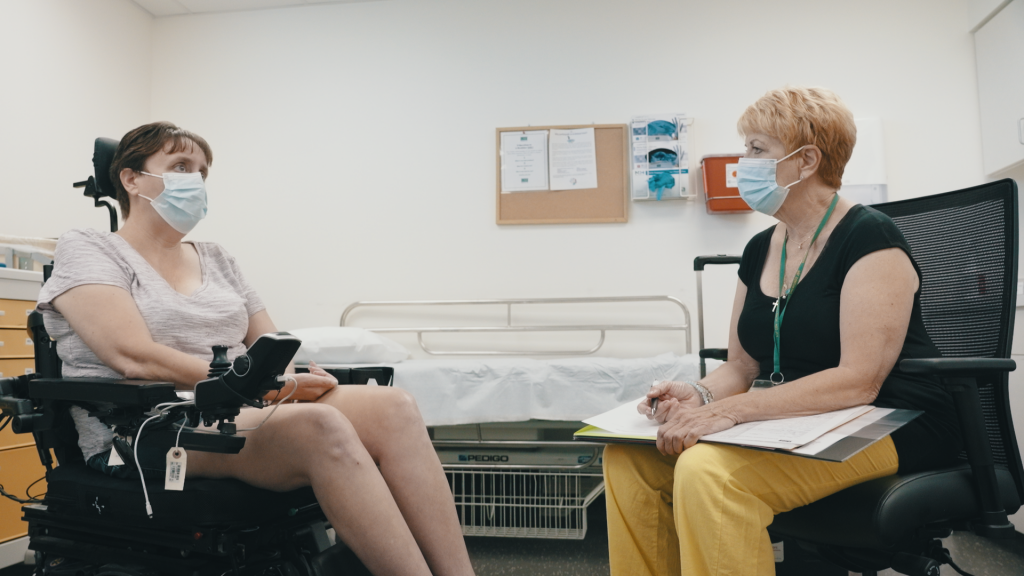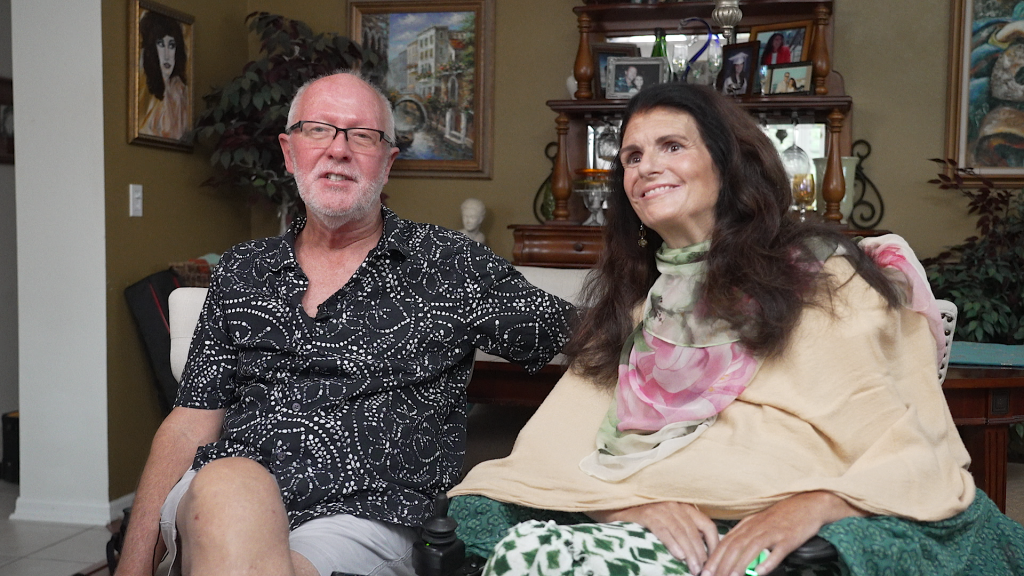Amyotrophic lateral sclerosis (ALS) is a progressive neurodegenerative disease affecting the nerve cells in the brain and spinal cord. The disease causes motor neurons to slowly degenerate, which causes the control of muscle movement and the brain’s ability to initiate that movement to be lost. This causes ALS patients to eventually lose the ability to speak, swallow, move, and even breathe.
The average life expectancy of individuals suffering from ALS is two to five years. However, consistent treatment and support from at an ALS clinic – with a multidisciplinary team that can provide the newest treatments, therapies and access to clinical trials – are proven to help slow the disease’s progression.
“ALS has different variants; some patients will have longer survival rates than others,” said Tuan Vu, MD, professor in the Department of Neurology in the USF Health Morsani College of Medicine and director of the USF Health ALS Clinic. “However, through supportive care, patients do live longer and there are studies showing that ALS clinics do prolong a patient’s life.”
The team at the USF Health ALS Clinic includes social workers, dietitians, and physical, speech, and respiratory therapists, as well as neurologists, nurse practitioners and primary care physicians. By bringing such a range of disciplines and experts together, the clinic can provide treatment all in one location at individual appointments, so patients do not have to make multiple appointments to see each provider. After each appointment, the team meets to discuss the patient’s current situation and coordinates next steps in care.
“Our meetings result in a much more seamless level of care that we would not be able to achieve otherwise,” Dr. Vu said. “As a team, the goal is to improve the quality of life of the patient and lessen the burden of the disease.”
Tina Orr is a patient at the USF Health ALS Clinic who has lived with ALS for three years.

Tina Orr visits the USF Health ALS Clinic.
“Here, they do not look at you as a number; they look at you as who you really are,” she said. “They will help you in any way possible. To have my voice, to be able to eat what I want, and be able to spend time with my family…They have made that possible for me.”
And Gina Rathbun was diagnosed with ALS in 2009 and has lived with the disease for more than 14 years.

David Rathbun and Gina Rathbun.
“All of these wonderful providers have helped us so much in adapting our life to live with this disease,” said David Rathbun, Gina’s husband. “Every time we go, we learn about what works and what doesn’t work. It’s been a really wonderful experience and incredibly helpful. Gina has been an inspiration to me and everyone around her.”
Currently, there is no cure for ALS. However, there are multiple efforts to produce effective treatment plans for patients. Recently, the U.S. Food and Drug Administration (FDA) approved Rilutek®, the first drug that has reliably extended the life expectancy of people with ALS. Despite this, the drug will not strengthen or restore patients’ strength. It is one of many new medications on the horizon that may help ease the burden for those facing ALS.
”Our hope is that when patients think they may have the condition, they reach out directly to our clinic,” Dr. Vu said. “We do make a concerted effort to reach back out to these patients as quickly as we can. The sooner we can implement treatment and involve patients in clinical trials that help slow down the disease the better they will be.”
For more information about the USF Health ALS Clinic and scheduling an appointment, call the Neurology scheduling line at 813-396-9478.
For more information on making a donation to the USF ALS Center please contact Jennifer Kuenning at 813-396-2523
Story and video by Ryan Rossy, USF Health Communications and Marketing
